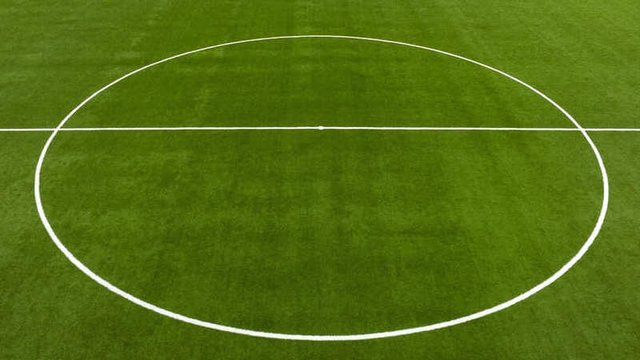
What does a sporting director do? Roles, skills, and career path
Edited on Sept. 4, 2025

The role of sporting director is one of the most strategic professions in football today. This position combines technical knowledge, management skills, and long-term vision. From sports planning to human resources management, the sporting director plays a decisive role in shaping the future of a club.
If you want to pursue a career in football and become a sporting director, you can enrol in the Master in Football Coaching in Madrid or the online Master in Football Coaching at Escuela Universitaria Real Madrid – Universidad Europea. These programs offer practical training guided by experts from elite European clubs.
Role of a sporting director
A sporting director is the professional responsible for overseeing all sporting aspects of a football club. Acting as a link between club management, the coaching staff, and players, the sporting director makes strategic decisions that directly influence the success of the organisation.
Their responsibilities range from defining the club’s playing philosophy to managing player transfers and developing youth academies. To succeed in this role, a mix of leadership, communication skills, and technical football knowledge is essential.
The profile of a sporting director
The profile of a modern sporting director combines technical expertise with management and interpersonal skills.
Technical Skills
- Tactical and technical knowledge: understanding methodologies of play and tactical systems.
- Performance analysis: evaluating players and teams using data and statistics.
- Scouting: identifying and recruiting talent that fits the club’s project.
- Financial management: ensuring compliance with Financial Fair Play and managing budgets.
Interpersonal Skills
- Leadership: guiding multidisciplinary teams.
- Negotiation: handling player signings and contract renewals.
- Conflict resolution: managing dressing-room dynamics and off-field challenges.
- Strategic vision: planning for medium- and long-term success.
Duties of a sporting director
Strategic Planning
- Defining the club's playing philosophy.
- Setting sporting objectives each season.
- Coordinating youth categories and academy development.
- Designing long-term training and talent pipelines.
Human Resources Management
- Hiring and evaluating coaching staff.
- Leading transfer negotiations.
- Making decisions on renewals, sales, and player departures.
- Supervising the development of young prospects.
Communication and Coordination
- Acting as the bridge between management and coaches.
- Coordinating with athletes, agents, and club departments.
- Managing internal and external communication channels.
How much does a sporting director earn?
The salary of a sporting director depends heavily on several factors, including the size of the club, the level of competition, the individual’s professional experience, and the results they are able to achieve.
At the entry level, a sporting director can expect to earn between €25,000 and €30,000 per year, particularly when working in lower-division clubs or smaller organisations. The national average salary is estimated to be around €30,000 annually, though this can vary significantly depending on performance and responsibilities. At the highest level of the profession, where directors work for elite clubs or major international organisations, salaries can exceed €100,000 per year.
Several key factors influence how much a sporting director earns. The division in which the club competes is a major determinant, as top-tier teams typically offer much higher salaries than lower leagues.
Professional experience also plays an important role, with directors who have spent years in the industry commanding greater compensation. Academic qualifications and specialised training, such as master’s degrees in sports management, can further enhance earning potential.
A proven track record of results, particularly in player recruitment and overall team success, also boosts salary opportunities. Finally, language skills are increasingly valuable in today’s globalised football market, as international communication is often a core part of the role.
How to become a sporting director
Academic Qualifications
- Basic training: Sports Science, Journalism, or Business Administration.
- Specialisation: Master’s in Football Management or Sports Management.
- Additional training: Scouting, tactical analysis, and financial management.
Practical Experience
- Former playing career or coaching or fitness coach background.
- Roles such as analyst, scout, or assistant manager.
- Positions in sports administration or technical secretariat.
Building a Professional Network
- Attending football industry events.
- Maintaining relationships with football agents, scouts, and directors.
- Participating in professional organisations.
Success stories of sporting directors worldwide
Successful sporting directors have transformed football clubs across the globe. Some examples include:
- Monchi (Sevilla FC, Spain): Revolutionised talent scouting and player trading.
- Txiki Begiristain (Manchester City, England): Built long-term success with strategic recruitment.
- Michael Edwards (Liverpool, England): Instrumental in creating a data-driven recruitment model.
- Giuseppe Marotta (Juventus and Inter Milan, Italy): Known for shrewd transfer deals and building competitive squads.
- Ralf Rangnick (RB Leipzig, Germany): Pioneered a sustainable football model focused on youth development.
These directors highlight how vision, leadership, and strategic planning can shape the destiny of a club, no matter the country.
Conclusion: Why sporting directors are key to modern football
In today’s game, the question “what does a sporting director do?” can be answered simply: they are the architects of a club’s sporting project. From managing transfers to developing future stars, they provide the strategic direction needed to achieve sustainable success.
A career as a sporting director requires passion for football, sharp management skills, and the ability to balance sporting ambition with financial reality. For those who aspire to this role, academic training, such as sports master programmes at Escuela Universitaria Real Madrid – Universidad Europea, and hands-on experience are the foundations of success.
Key Takeaways
- A sporting director bridges management, coaches, and players.
- Their responsibilities include strategic planning, transfers, and academy development.
- Salaries vary widely, with top directors earning six figures.
- Academic qualifications and networking are crucial to breaking into the profession.
- Global success stories show how sporting directors transform clubs at every level.
Article published on July 21, 2022